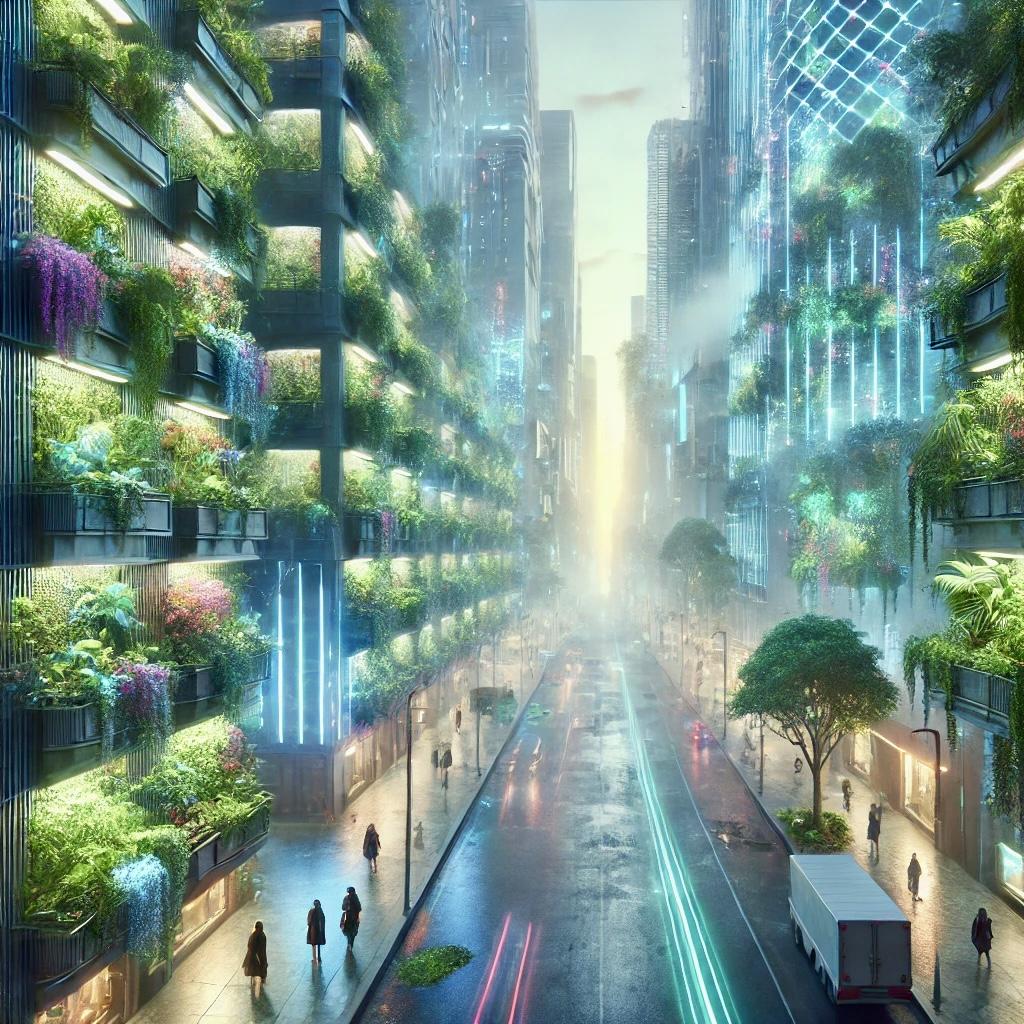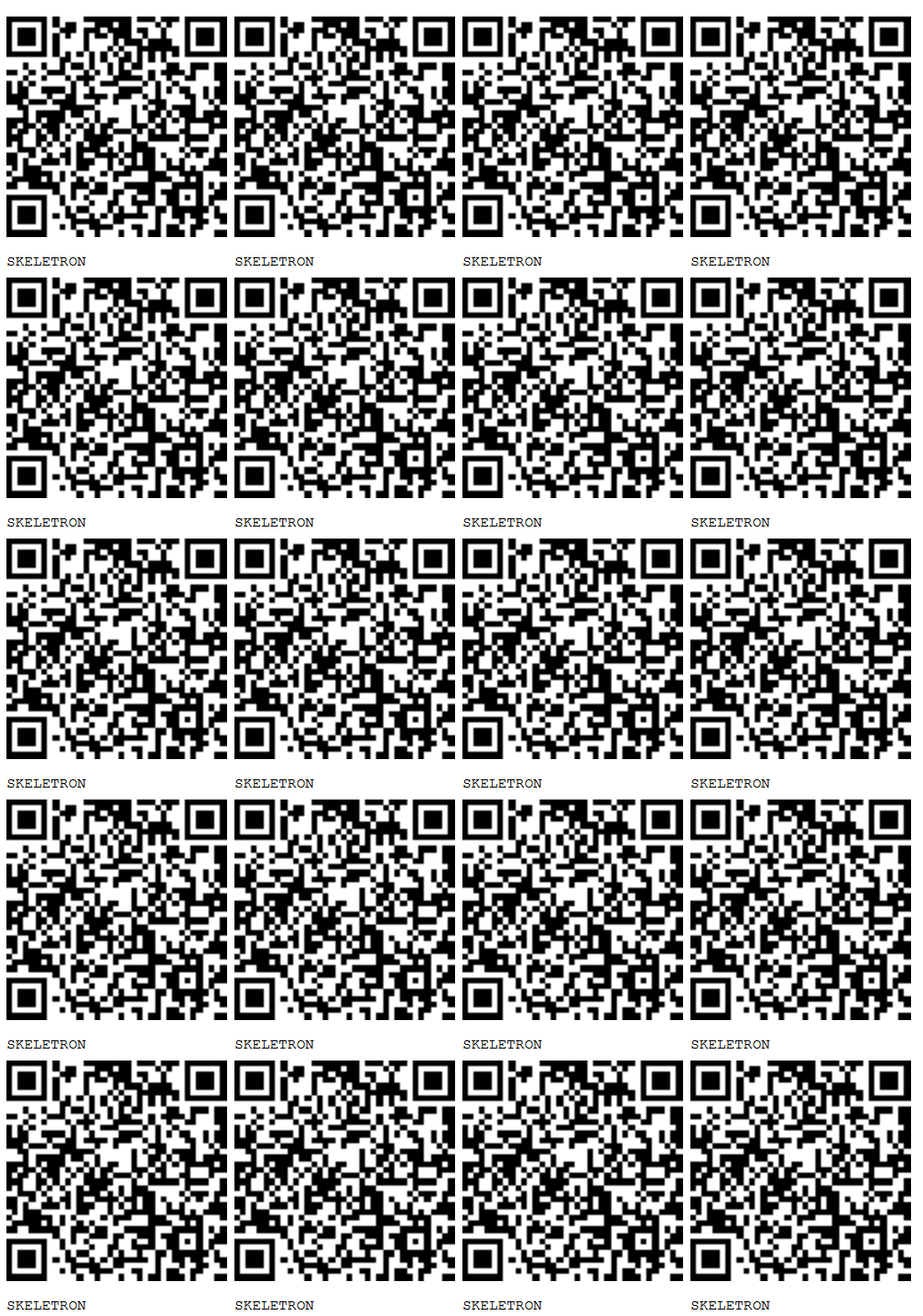
In Vernor Vinge’s groundbreaking novel Rainbow's End, the world is transformed by the ubiquity of wearable technology, enabling augmented reality (AR). It presents a future where every individual interacts with an ever-present AR layer that redefines human engagement with the physical world. Just as this AR layer reshapes the world in Vinge's novel, ReLeaf is creating its own transformative layer in Austin—but with a distinctively green twist.
In Rainbow's End, everyone wears contact lenses that provide access to this ubiquitous AR layer, immersing them in a world where digital and physical realities intertwine. Vinge’s vision of an interconnected AR society raises profound questions about privacy, societal change, and environmental impact. It's a prescient look at technology's power to shape not only our lives but the very world around us.
Drawing parallels to Austin's burgeoning ReLeaf initiative, we see similar opportunities for transformation. Instead of digital information overlaid on our reality, ReLeaf proposes an AR layer of green—a network of vertical gardens that transform barren fences and walls into thriving ecosystems. While this green AR layer might not be visible through a pair of contact lenses, its effects on the urban landscape and the community are equally profound.
Much like the characters in Rainbow's End, Austinites will engage with this new layer in their reality. They'll be able to interact with, contribute to, and benefit from the lush, green spaces in their neighborhoods. However, unlike Vinge's world—where people risk losing touch with reality—ReLeaf’s mission is to keep us grounded, fostering deeper connections to nature.
Vinge’s novel offers both a lesson and a warning for Austin's ReLeaf initiative. The lesson is in the power of a shared AR layer to connect people and transform environments. The warning is to ensure this layer enriches our lives, rather than dominates them. In Rainbow's End, humanity risks becoming lost in the digital world, alienated from physical reality. ReLeaf, on the other hand, offers an AR layer that deepens our connection to the natural world, promoting a symbiotic relationship between urban life and nature.
Rainbow's End shows us a future reshaped by AR technology. Inspired by this vision, the ReLeaf initiative is poised to transform Austin into a city where every wall and fence can become a source of life, beauty, and community engagement. It's a vision that transcends the boundary between technology and nature, creating a future that’s not only sustainable but also vibrant and inclusive. Just as the characters in Rainbow's End adapt to their new AR reality, we too can adapt and thrive in our greener, richer, ReLeaf-enhanced world.
🚮 W.A.S.T.E.: Words Assisting Sustainable Transformation & Ecology
| Term | Definition |
|---|---|
| Air Canopy (0.00) | A suspended layer of fragrance and filtration woven through the city’s atmosphere, releasing restorative scents while purifying the air and easing public unrest. |
| Ancestral Signal (0.00) | A pulse older than electricity, carrying memory from deep strata into the present. |
| Augmented Reality (0.00) | Practice of local repair, reuse, mutual care, and shared access. People use scrap, skills, and trust to keep each other safe and resourced when official systems fail. |
| Biomimicry (0.00) | The practice of drawing inspiration from nature’s designs, processes, and systems to create sustainable human technologies and solutions. |
| Clandestine Collective (0.00) | A hidden network of urban stewards who move beneath the official grid, planting quiet interventions such as living walls, water hacks, and spectral gardens that reshape the city without ever claiming credit. |
| Code Rain (0.00) | The visual shimmer seen during network synchronization events. Appears like falling digital mist that leaves no trace but calms the mind. |
| Conscious Eating (0.00) | Welcome to our exploration of Conscious Eating, an enlightening and transformative approach to our everyday food choices. Conscious Eating is the mindful practice of acknowledging and understanding the impact of our food choices on our health, the environment, and society at large. It encourages us to become more aware of the origins of our food, the methods by which it's produced, and the implications these processes have on the environment and the communities involved. Join us as we delve deeper into this fascinating subject, illuminating how each meal can become an act of conscious decision-making, extending far beyond mere sustenance to embody personal, environmental, and social well-being. |
| Environmental Engagement (0.00) | Welcome to an exciting exploration of Environmental Engagement, a term that encompasses our personal and collective actions towards preserving and improving our natural environment. Environmental Engagement refers to the commitment and participation in activities that contribute to the protection of our environment and the promotion of sustainable practices. It encourages us to consider how our decisions, as individuals or organizations, impact the environment, and to actively participate in mitigating harmful effects. In this section, you'll find an array of articles that offer unique perspectives on Environmental Engagement, particularly in the context of ReLeaf's cooperative ownership model. We invite you to delve into these thought-provoking pieces and join us on this journey of understanding and fostering Environmental Engagement. |
| Forgotten Ledger (0.00) | The invisible account of lives and selves recorded in fleeting traces like receipts, mirrors, and margins, always half-remembered yet never erased. |
| Future Austin (0.00) | Future Austin invites you to explore a luminous vision of the city’s tomorrow—where imagination and reality intertwine to create a thriving, sustainable urban landscape. Here, grassroots ingenuity and cutting-edge technology power communities, transforming Austin into a place of boundless possibility. Through insightful articles and evocative Organic Fiction, you’ll glimpse futures shaped by innovators like ReLeaf, whose bold strategies—such as Vertical Garden Fairs in schools—seed green revolutions in unexpected places. From unconventional movements like Trash Magic reimagining music distribution, to fictional worlds alive with unseen energy and harmony, this collection offers both practical inspiration and immersive storytelling. Whether you’re drawn to actionable sustainability or simply wish to lose yourself in tales of a resilient, radiant future, Future Austin points toward the city we could create—and the one we must. |
| Green Technology (0.00) | Innovations and systems designed to minimize environmental harm while promoting regeneration, weaving sustainability into energy, materials, and everyday life. |
| Literary Criticism (0.00) | This selection of articles offers a deep dive into Organic Media narratives and eco-futuristic themes, intersecting literature, architecture, and speculative design. Through these works, we explore how storytelling becomes a vehicle for envisioning green futures and resilient societies. The articles are grounded in a mix of fiction and theory, drawing from notable works like The Crying of Lot 49 and Gödel, Escher, Bach, alongside practical ReLeaf initiatives such as urban gardening and waste management. These discussions weave together the environmental challenges we face today with imaginative, forward-thinking solutions. From vertical gardening in urban settings to speculative parables of technology’s role in shaping ecological harmony, the pieces not only critique but offer actionable insights inspired by literature, philosophy, and cutting-edge sustainability movements. Each article is a testament to how art and fiction can fuel change, showing how imagination blends with real-world solutions to create a future that is both possible and desirable. The symphony of eco-conscious architecture and literature, particularly in the Chthulucene, shines a light on the pathways to regenerative cities, where design and storytelling converge to guide a sustainable tomorrow. |
| Mycoremediation (0.00) | The practice of enlisting fungi as silent custodians, their branching mycelial webs breaking down toxins, filtering waters, and stitching damaged ecologies back into balance. |
| Planterns (0.00) | Planterns are whimsical upcycled creations—paper lanterns transformed into one-of-a-kind planters. No two are ever the same: each Plantern carries its own identity, tied to a unique ID that connects it to specific digital media such as Organic Fiction narratives, recorded music, and other creative works. The soft glow and airy shape of its former life remain, now reimagined as a home for trailing vines, succulents, and blooms. Made from reclaimed materials, Planterns celebrate renewal—giving discarded objects a second chance and your plants a distinctive stage to grow. Part art piece, part living sculpture, a Plantern is both physical and digital—a tangible vessel for life linked to a story, a song, or a world you can step into. |
| ReLeaf (0.00) | Welcome to the ReLeaf Cooperative, where we dive deep into an innovative and revolutionary model of sustainability and community building. ReLeaf is a pioneer in developing scalable engagement strategies that foster community participation and work towards addressing pressing social issues such as homelessness. In this category, you'll find articles and Organic Media detailing ReLeaf's groundbreaking initiatives and visions. From creating sustainable gardens in Austin elementary schools to providing transparency in a world often shrouded in deception, ReLeaf serves as a beacon of hope and innovation. ReLeaf's approach of intertwining real and fictional elements in their work—such as characters, materials, techniques, and labor—sets a new standard for cooperatives worldwide. Its business model, which compensates for labor and knowledge contributions, creates a lasting benefit and helps people who have historically been marginalized. By meeting people with compassion, as resources in need of support instead of liabilities, ReLeaf has shown that everyone has the potential to contribute to society meaningfully. Explore this section to discover how ReLeaf is redefining the way we approach social issues and sustainability, with stories of inspiration, innovation, and hope. |
| Skeletron (0.00) | TRASH MAGIC SKELETRON!
SKELETRON IS A SET OF SELF-REPLICATING GEOMETRIC CONSTRUCTIONS USING STICKS, CORDS, AND THE PRICIPLE OF TENSEGRITY! DRILL HOLES IN THE ENDS OF STICKS! CUT CORDS TO ABOUT 18 INCHES(ONE CUBIT) IN LENGTH AND TIE THEM INTO SQUARE KNOTS TO CONNECT VERTICES! USE THE PLATONIC SOLIDS TO CONSTRUCT WORLDS OF GEOMETRY! BUILD FULL TRASH MAGIC UP AND DOWN EVERY RIVER VALLEY IN THE PLANET! AND CREEKS! 
 REPLICATOR SCROLL AT GITHUB!
REPLICATOR SCROLL AT GITHUB!
|
| Storytelling (0.00) | The act of weaving memory, place, and imagination into living threads that reshape both the teller and the city, turning narrative into a tool of survival and renewal. |
| Verducity (0.00) | A city whose very structure grows like a forest, blending human architecture and living ecosystems into one seamless form. |
| Vernor Vinge (0.00) | Practice of local repair, reuse, mutual care, and shared access. People use scrap, skills, and trust to keep each other safe and resourced when official systems fail. |
| Vertical Garden (0.00) | Dive into our Vertical Garden section where creativity meets sustainability. This is a celebration of the innovative approach of integrating plants into urban environments in a vertical format, a testament to human resourcefulness in the face of limited space. Here, you'll discover a vast array of ideas on how to transform would-be waste materials into sustainable, beautiful, and thriving gardens. From DIY guides on upcycling aluminum cans into modular planters, to detailed articles and SolarPunk fiction exploring the transformative power of these gardens in various settings like Austin's schools and cityscape, the Vertical Garden category provides a deep dive into a green future. Through the articles and stories in this section, we share and explore concepts, techniques, and innovations that align with a sustainable, circular economy, which views waste as an asset rather than a problem. Whether you are looking to start your own vertical garden project or just enjoy immersing yourself in hopeful visions of a green urban future, you're in the right place. Join us as we explore and reimagine our relationship with nature and urban space, one vertical garden at a time. |
Ledger balance
Link to this Organic Media: